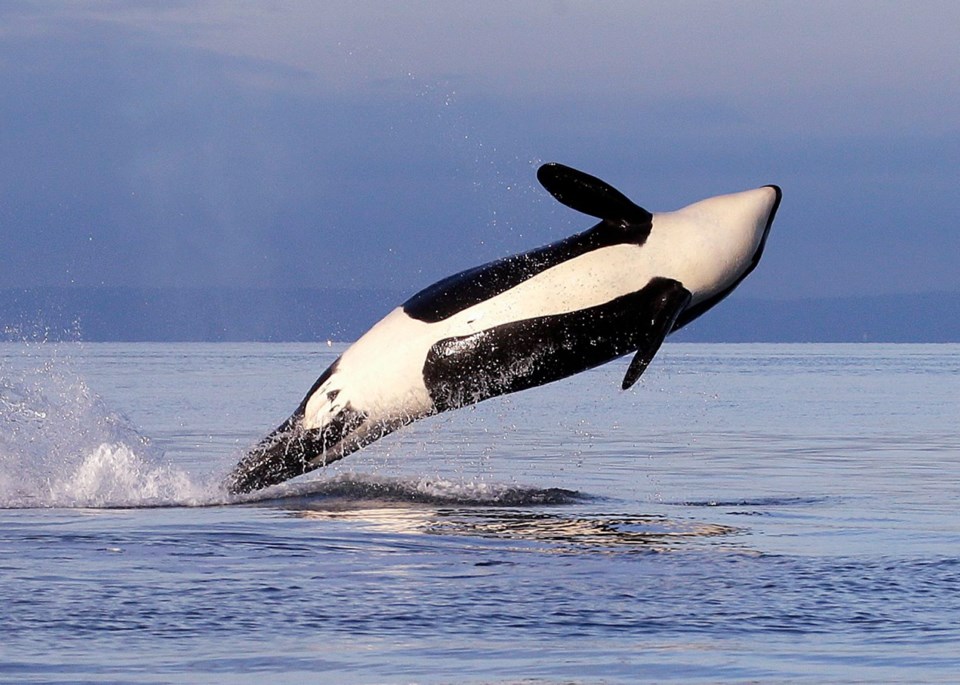British Columbia is joining Washington state and Oregon for Orca Awareness Month, an initiative to educate, inform and protect the marine environment, in June.
The month is both a celebration and an opportunity to increase public awareness of the threats facing the Salish Sea, the habitat of 125 marine species at risk.
The Georgia Strait Alliance will take a lead in sharing information about the plight of the Pacific Northwest’s most iconic species — the orca — in the hope that everyone will join in the protection of these fragile creatures.
Of the marine species at risk, the most threatened are the southern resident orcas. They face a dwindling food supply and exposure to pollutants from industry and are surrounded by noise from vessels.
Unlike transient orcas, which pass through the area and feed on mammals, the southern residents stay in the waters in the Salish Sea throughout the year, feeding on fish. Their diet consists of about 80 per cent chinook salmon. Unfortunately, overfishing of salmon and many other factors have dramatically reduced their numbers.
Orcas hunt, communicate and navigate by sound. Noise created by industry such as commercial and private vessels, naval sonar, drilling and resource exploration interfere with their hearing.
Chemicals in our waters enter the marine food chain starting with the smallest of creatures — zooplankton. The zooplankton are eaten by small fish, which are then eaten by larger and larger fish.
With every step up the food chain, the concentration of these chemicals is magnified (this is referred to as biomagnification). Eventually, top predators such as the orcas consume the highest levels of contaminants that have accumulated through the food chain.
“We regularly engage with the federal government and industry to press for urgent action to counter the threat to orcas, wild salmon and marine protected areas,” said Christianne Wilhelmson, executive director of the Georgia Strait Alliance.
Educational and celebratory events taking place throughout June seek to engage the coastal community and citizens alike. Activities include an online summer photo contest, with blog posts and facts and photos of the day.
The Victoria Foundation assists by providing financial assistance to the Georgia Strait Alliance for its Species Protection program.
For more information, go to georgiastrait.org.



